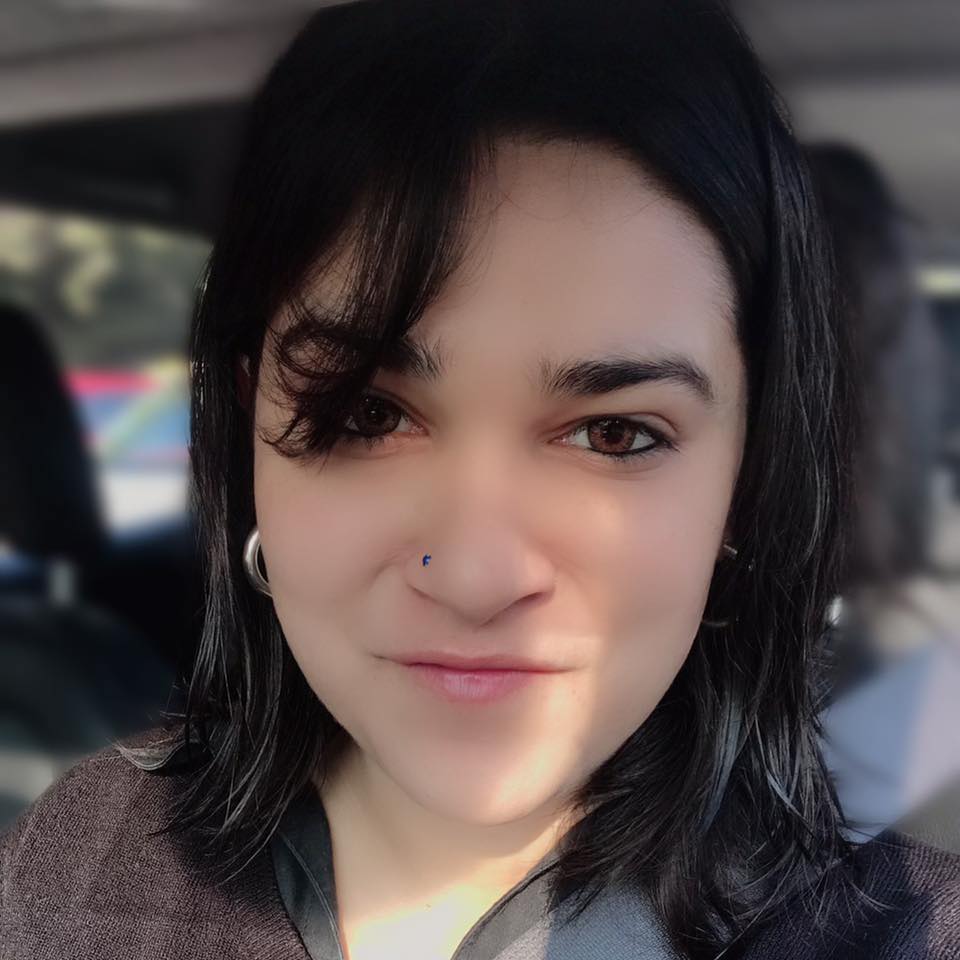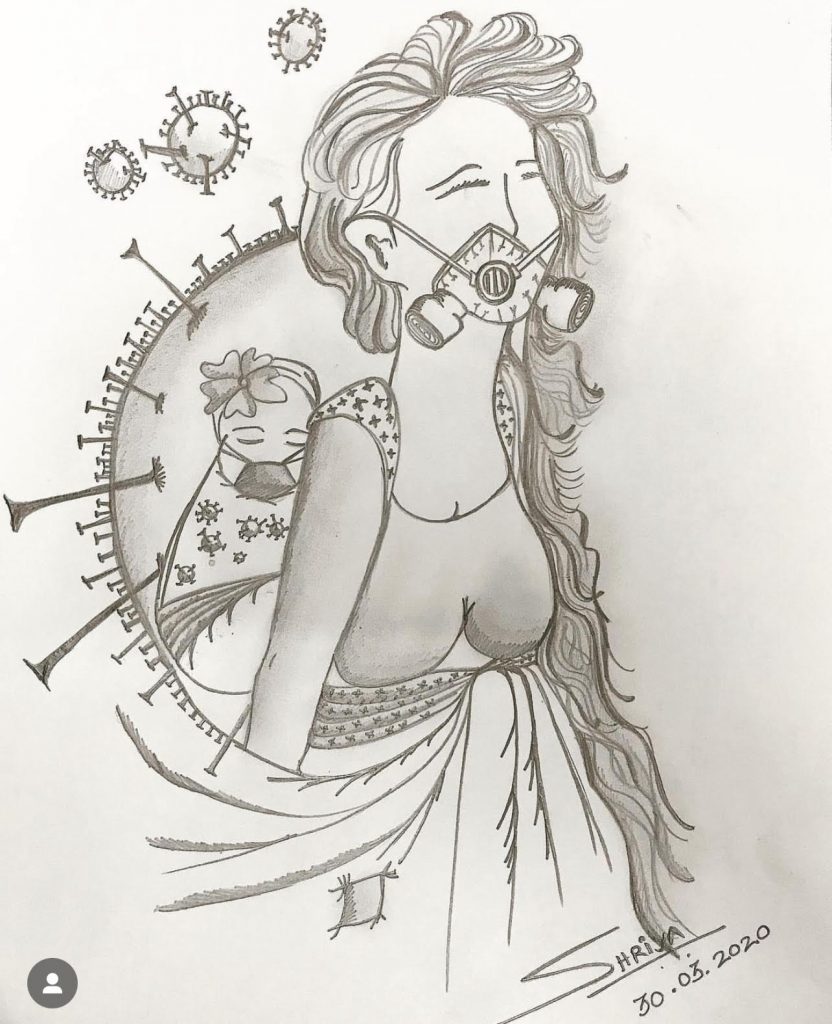AOR
10146
1
0
“RUN AFTER WORK, NOT MONEY! The opportunities I seized with heart and soul have led me to where I am today. Dedication, consistency, patience, and a good support system are key to success.” – Shriya Maini, Advocate-on-Record, Supreme Court of India
This interview was taken by SuperLawyer Team
Posted on May 23, 2024
This interview has been published by Namrata Singh and The SuperLawyer Team

Your journey from GNLU to Oxford seems fascinating. Can you share what inspired you to pursue law, and What challenges you faced along the way, and how you overcame them to achieve your current success?
First of all, thank you for this question! It takes me down memory lane instantly. At first blush, I would say yes, it has been an incredible journey really, especially after having sailed through a decade in the profession. My path to becoming an Advocate – on – Record (AOR) practicing at the Hon’ble Supreme Court of India has been indeed fascinating and exhilarating, starting from the initial seeds sown by my father {that his daughter would lead his counsel practice} to this day when I’m actually living my dream, quite literally!
With a family background deeply rooted in the legal profession, law was an organic choice. My late grandfather served in the Shah Commission as a Magistrate and my father followed his footsteps, but on the other side of the Bench. As a single child to my workaholic parents, I would come back from school only to see my father conduct client meetings in the outhouse make – shift chamber he had set up in his early years. Legal news (both print and media) would dominate daily dinner table conversations over the latest movie release. I was often asked to question, critique and debate every proposition or change that my parents had made in the house, right from the choice of vegetable to be cooked for dinner to a property to be acquired by the family. I came to fall in love with the law as such, almost even before I knew anything about the profession. Without me realizing, the law had become an integral part of my upbringing and I was nurtured in an environment almost normatively to have embraced the legal career subsequently. Therefore, despite my mother’s initial insistence (her being a Doctor) on pursuing sciences in school, I eventually turned towards being a lawyer. Though I studied science subjects at my Plus 2 levels, little did I know – destiny had other plans for me…..
I was the first CLAT batch, and successfully cracking the exam did open doors to several prestigious institutions in India. Gujarat National law University (GNLU) marked the beginning of an enriching five-year law school journey, with hostel life being nothing short of “transformative”, both personally and professionally for me. I made some wonderful friends, interacted with a bunch of brilliant teachers (William Sir and Jagdeesh Sir) and realized that I had to study with utmost focus and dedication to top my batch. This was the only way I could get placements and scholarships early on. I believe I truly became independent (having grown up as a single child who was now left to fend for herself) and adjusting (hostel does teach you a lot – share and care). Managing my own finances and daily expenditures, eating whatever was served in the mess (Mind you, Mohini Caterers did a wonderful job!), I navigated through the challenges of a typical law school life, striking a delicate balance between study, leisure, and extracurricular pursuits like mooting, conferences etc.
To sum up, my time at GNLU laid the foundation for my legal career, igniting a passion for the law, particularly in areas like practice and procedure. The prospect of courtroom advocacy became increasingly appealing, prompting me to veer towards litigation. The dilemma struck when I did top my batch, only to secure a pre – placement offer at a prestigious law firm in Delhi (the then Amarchand Mangaldas & Shroff & Co.)!
Having spent a few months at the firm, I realized I was made for the Courts perhaps! I felt under-utilized, having sat on a Rejoinder for almost 3 months. I began to miss my dad’s daily anecdotes, describing legal banter, having turned the wheels to head to Court. The allure of the courtroom drama where I got to witness the direct impact of my legal arguments on people’s lives fueled my desire to pursue advocacy and I began assisting my father’s Chambers (Rajive Maini Advocate). Before I knew it, I had transitioned from commercial / corporate law to litigation, and I could see my legal education translate into practical outcomes resonating with the masses instantly.
What was beautiful about my journey in hindsight was that I never planned a thing. While going up and down to Courts in New Delhi, suddenly my scholarship and Masters in law applications came through. Life took an unexpected turn and I landed at the United Kingdom, Exeter College on a full scholarship (my tuition fees and living expenses covered) to study at the University of Oxford. I was the only Indian student in 2014 who was independently sponsored by Dr. Harish Salve, Senior Advocate to pursue her Masters in Law at Oxford. Next blink of an eye and I reached The Hague (Den Haag), The Netherlands working at the United Nations Tribunal, all thanks to Professor Dapo and Judge Meron, my mentors from Oxford!
So, I would say, reflecting on this roller – coaster of a journey, while I may not have meticulously planned every step, I embraced each opportunity that came my way wholeheartedly. I believe the opportunities that I seized and grabbed with not only my hands, but also my heart and soul have led me to where I am today. Every twist and turn in my journey was instrumental in shaping my path towards being a practising lawyer, reinforcing my commitment to the profession and its impact on the society.

What inspired you to pursue becoming an Advocate on Record (AOR) and how did you manage to attract larger cases? Reflecting on your journey, what were some of the initial hurdles you encountered, despite your established legacy? How did you navigate through these challenges?
My father would often say to me “Aim for the Stars Shriya!” That’s precisely what I imbibed since childhood. When I was studying at GNLU, I had no clue about the existence of the Supreme Court Rules of Practice and Procedure, 2013 which govern the Apex Court corridors! Today, I run an AOR chamber practice independently and realize the growing importance of the specialized examination. I must proudly admit that it is one of the best decisions I have taken in my legal career to have cleared the AOR examination. AORship instantly transitioned my practice from trial court to the appellate jurisdiction – The Hon’ble Delhi High Court and The Hon’ble Supreme Court. The bigger briefs just seep in, as long as you are dedicated, talented and hard working. I was lucky to have transitioned into building an AOR practice during the pandemic (Covid – 19) since e-filing, online drafting, and virtual conferences wasn’t a facility every chamber was offering! With my father’s Chambers now handling high stake Supreme Court briefs with ease, I am an integral part of the drafting, arguing and soliciting process.
But first Credits please! – The main men who inspired me, apart from my father, to reach the Hon’ble Supreme Court corridors were Director Sir (Prof. Dr. Mohd. Salim, Director, Lloyd Law College, Noida); William Sir (Dr. Nunes, Gujarat National Law University) and Hon’ble Mr. Justice Sibo Shankar Mishra Sir, Orissa High Court who was then Advocate on Record at the Hon’ble Supreme Court of India. I shadowed under Sibo Sir as a mandatory examination requirement and I owe whatever little I have managed to achieve till date to these stalwarts.
Now, the biggest challenge really was passing the examination in one go! As one of the youngest AORs in the country, what impressed me most was the detailed approach the examination process followed. Spanning across four days with three-hour exams each day, it was indeed a rigorous test of theoretical knowledge and practical expertise. Despite my confidence, I found myself overwhelmed on the fourth day, a testament to the exam’s demanding nature. The subjects as such are not tough but pretty bulky, emphasizing on practical skills and theoretical knowledge – mentioning, urgent hearings, circulation, drafting etc. Supreme Court Practice and Procedure is one subject which requires a deeper understanding of courtroom dynamics and legal intricacies to sail through. So whether you have a legal legacy or not, the AOR examination I can safely say is NOT one plagued by the Uncle Judge syndrome, which is why maybe we just have about 5000 odd AORs in the country as on date! It is indeed an exclusive Chamber practice looked at with much prestige, both inside and outside the corridors. Procuring briefs and being paid handsomely was another challenge outright. Conventionally, clients preferred experienced seniors in the Apex Court corridor. Today, the trend has changed. Fresh Young blood is taking over and the Benches too are very encouraging to the younger lot of AORs.
I was lucky to have an inflow of some basic works when I became an AOR in 2019. Be it a simple matrimonial Transfer Petition or a Bail matter which had organically walked its way to the highest court on account of concurrent rejections, I did not let go of any work, even if it meant filing my Vakalatnama Pro – bono back then. I was hungry to learn work and I knew that each and every filing was bound to teach me something new, which would augment my knowledge and skills. So I kept patience and consistently worked up civil, criminal, debt recovery and insolvency briefs without batting an eyelid or being money hungry for big bucks in the Supreme Court corridor. As a younger chamber which had aggressively shifted towards e – filings and VC hearings during Covid, we were dabbling several courtroom links in a day. I had consciously decided not to take up a panel practice and I deliberately chose quality over quantity when it came to drafting and arguing my own Supreme Court briefs. I never hired a Senior Advocate and I filed, mentioned and argued my own matters. The Hon’ble Judges too were very encouraging to me as a young AOR and till date, they are. I have just had a Review Petition which was allowed in open Court, the Special Leave Petition having been restored. This was a first in my career since Review Petitions are a rarity in the Apex Court to even be listed for an open Court hearing. It was such a moment of pride for me as a young AOR. Today, I make more than enough money but the tip that I’d give young AORs is – RUN AFTER WORK, NOT MONEY!
Complex cases often referred to as “larger high stake matters” walked in organically after some months and those required meticulous examination of Ld. Trial Court records, and Hon’ble High Court decisions. Progressing through various tiers of the judiciary sharpened my legal acumen and transformed my gaze from that of an Advocate to an AOR (from factual analysis to intricate legal criticism). As one ascends to the Apex Court, the focus shifts towards critiquing the law, identifying gaps, and advocating legal reform – for instance drafting of Questions of Law! Constitutional Law, Administrative Law and Procedural Law become the subjects to swear by. My dad decided the Chamber would do Trial Court matters which as much zest as the AOR briefs for that would keep us firmly rooted at the grass root level. Justice was all I wanted to make popularly and easily accessible to one and all and before I knew it, I had successfully established an AOR practice at my Chambers, adding a brick more to the wall that stood tall, built by my father.
Could you share your transition from being an Advocate on Record (AOR), known for your strong passion for litigation, to delving into dispute resolution, particularly in the realm of arbitration? How did you navigate this shift, and did you find the transition as fulfilling as your experiences in the courtroom?
I’ve been fortunate to enjoy a diverse academic journey, majoring in International Crimes to International Commercial Arbitration – all at the same time! At University, more particularly Oxford in the United Kingdom while doing my BCL (Bachelor of Civil Laws – a master’s level taught degree course that retains the canon law name) I explored a range of subjects namely International Humanitarian Law, Crime and Commercial Remedies / Arbitration. Even during my brief stint at Amarchand Mangaldas Law firm prior to my Masters (erstwhile SAM and CAM) I was working with the Arbitration and Litigation Team. We were actively involved in a Mozambican – Indian govt. railway contractual breach issue and at concomitantly, I was also drafting a Rejoinder and an environmental law Writ Petition. It was this diversity which kept me engaged and motivated perhaps!
During your time at Oxford, you received recognition through various awards and scholarships, such as the Oxford Global Justice Award for Public International Law. Could you provide insights into some notable experiences from that period? Furthermore, how has your exposure to PIL at Oxford influenced your professional journey in India, and what aspects of PIL have you integrated into your practice?
While at Oxford, I was blessed to be taught by an amazing professor namely Dr. Dapo Akande who is a British-Nigerian academic and lawyer. Dr. Akande is the Chichele Professor of Public International Law at the University of Oxford, a Fellow of All Souls College, Oxford and co-director of the Oxford Institute for Ethics, Law and Armed Conflict (ELAC). He was the one who propelled me to apply for the said Award and during my tutorial sessions he ranked me the highest in class for I had boldly critiqued one of his articles published on the European Journal of International Law (EJIL) blog, a free and open platform curated by him on the subject. He taught me how to engage in scholarly discourse and this is how I ended up drafting my first ever Memorandum on Diplomatic Assurances while interning under Judge Theodor Meron at the Mechanism for International Criminal Tribunals (MICT) at The Hague, The Netherlands. For the benefit of Indian students, I even published the said Memo as a free read – https://blog.ipleaders.in/international-law-permit-deportation-assurances/
As the Global Justice Awardee for Excellence in Public International Law for the year 2015 – 16, I was most delighted when the Oxford Global Justice Committee 2015 offered to fund my clerkship at the Mechanism for International Criminal Tribunals (MICT), The Hague, beginning January 2016. I landed an opportunity to work under the most able and wonderful guidance of Judge Theodor Meron, President of The MICT, a new court of law that had been established by the United Nations to carry out a number of essential functions of the International Criminal Tribunal for Rwanda (“ICTR”) and the International Criminal Tribunal for the former Yugoslavia (“ICTY”) after the completion of their respective mandates, including, inter-alia others, handling appeals and re-trials, tracking the remaining fugitives and maintaining the legacy of both institutions, namely the ICTR and the ICTY.
As the first and only MICT intern then on board, I assisted the President and his staff on a variety of projects, which typically included drafting and reviewing assignment and sentencing orders; undertaking research on a plethora of legal propositions; due-diligence exercises; drafting minutes, notes and research memoranda; and fulfilling any other specific judicial functions of the Tribunal. Most often, my tasks, in terms of subject content spanned across issues pertaining to International Criminal Law, International Humanitarian Law and Public International Law. This not only made my work as a lawyer very fascinating but also, helped me understand how the aforementioned subjects really play out together in practice. Be it drafting memoranda on procedures for filing refugee claims or assessing the legality of deportations, I dabble in a comparative analysis of different jurisdictions (including the U.K., U.S.A. and European Court of Human Rights etc.) on a daily basis. This clerkship gave me an unparalleled opportunity to interact with legal luminaries and experts in Public International Law across the globe and learn the nuances and intricacies of international crime from the stalwart himself, Judge Theodor Meron. I truly believe that it is solely because of the support I received from the Oxford Global Justice Award and Dr. Dapo Akande, my Professor at Oxford University, that I was able to experience the incredible work culture at the MICT.
Upon returning to India, I integrated my newfound PIL knowledge into teaching as well as legal practice. Today, I do Bails for economic frauds of cheating, forgery and criminal breach of trust, besides the special laws (CBI / ED) with utmost interest! I am an Adjunct Faculty / Visiting Faculty for Supreme Court Practice and Procedure, International Criminal Law, Modern Laws of War, Human Rights and Women and Child Law at several law schools like Lloyd Law College, RGNUL Punjab, Renaissance Law Institute and NLU, Delhi. A pinch of academia really keeps me going I guess and most of my writ law drafts are sprinkled with arguments vociferously shouting PIL all over. It’s fascinating to witness how seamlessly applying foreign legal principles within the Indian context offers innovative solutions to complex legal dilemmas, paving the way for progressive legal reform.
Could you share insights into how you manage to balance these roles with such passion and energy? We’re keen to understand your strategies for maintaining high levels of energy and enthusiasm, especially considering the demanding nature of legal practice. Your ability to prioritize both your professional responsibilities and your dedication to helping others is inspiring, and we’d love to learn more about this.
Well, let’s start with this! It is a highly stressful job being an Advocate on Record at the Supreme Court of India, specializing in disputes ranging from Bails, Suspension of Sentences, SLP hearings, and Interim reliefs sought a propos Property and bank Recoveries. All the said work reeks of EMERGENCY at first blush! I would concede that I am a workaholic, putting in at least 12 – 14 hours a day at my desk in the office! I don’t take the Sundays off – I teach the law and interact / engage with students to keep abreast with legal drama unfolding across the country and globe! I verily believe I was made to serve people and get them justice. So my passion and energy stems from right there. Also, I love to sit on a table and crack a cross – examination in a rape case for instance with my father, till date. I enjoy every gush of the adrenaline rush a court hearing pumps in me so I make time to study the law, as much as I can.
However, I do recognize the importance of balance and self-care. I spend the evenings chatting with my parents and partner. My dad and I ensure that we do not discuss the law on the dinner table and we just choose to consciously laugh a lot, talk to as many people as we can, absorbing from the environment akin a sponge, keeping things in perspective. Till date, I draw my sense of self from my parents and not my work, and hence, I believe that I am bettering at my craft by the second! I try to ensure I have a priority list of works ready, with the office pushing out one legal draft a day. We file and argue cases daily, with a lot of homework being put in for days before the actual court hearing. As a chamber therefore, we enjoy a 99 % success rate I can proudly say! I’ve been taught to vigorously prepare for a courtroom battle and till date, I rehearse my arguments while bathing, sleeping and eating, literally living the law each second!

What advice do you have for younger or new lawyers looking to enter this field? What should they focus on and how should they approach it? Additionally, considering the importance of guidance and mentorship, what areas should they prioritize to ensure their success in this profession?
Firstly, be disciplinedI I make it a point to be in bed by 10:00 PM on a daily basis, aiming for lights out around 9:30 to 9:45 PM. I try to get a solid eight hours of uninterrupted sleep, waking up refreshed at 6:00 AM, ready to tackle the day ahead with my father, my mentor cum boss. As a younger lawyer, and more so a woman in her thirties (which I proudly embrace) getting enough sleep is most critical for staying sharp and focused all day long in Court. I read my case files in the morning and that works for me. So for all the new entrants, please party less and sleep more.
Another tip would be – Think out of the Box! I took up academia because it was easy money, came naturally to me (being an identified core strength) and I particularly enjoyed it in college, teaching my classmates. See what works for you! A lawyer struggling to build their practice with free time at hand can copy edit books, pen down legal books and commentaries, teach or even publish blogs and articles at first instance. These work strengths have today helped me draft well, to the extent that I am able to get Notice issued on the first hearing by the Hon’ble Court on the strength of my writing skills purely, without arguments having been heard!
Also focus on timelines / deliverables and do not sit overdrafts for days. With so many lawyers offering services in the market, it is essential that your drafting as a lawyer stands out in perfect English language and hits all the legal pointers. Therefore, legal research is another precarious cornerstone of my law practice. I’m committed to conducting a thorough research, drawing on my fondness for this aspect since law school days. If a junior struggles with research, I dive in myself, investing the time needed to ensure comprehensive preparation for I do not go to Court without a legal precedent on the point. Prioritizing this area I believe has ensured my success in the profession.
Lastly, I’d say do not get disheartened! Every day in Court is a new learning. Do not get affected by the scolding of a Bench or the dismissal of a Petition. Instead, hustle and find the next brief! Be a bit selfish and think about your work single handedly. It’s an entrepreneur’s life in a nutshell where we build our practice and sustain it. Right from being the Xerox guy to the chaiwala in the office, a young budding lawyer adorns many hats – draftsman (/woman), briefing counsel, arguing lawyer, recovery agent! So enjoy and love your daily work. TO sum up, dedication, consistency, patience, passion and diligence, besides a good support system are key during these periods of growth and these will make or mar your legal career, quite literally!
Could you please share your interests and hobbies? How do they contribute to your professional practice? Additionally, what advice do you offer to your mentees, particularly regarding decision-making in their legal careers, considering the diverse challenges they may face, especially in the post-COVID era?
Before I answer this question, I must fairly admit – I love spending time with my parents, partner, aunt (masi) and grandmother (Nani)! So all my free time, whatever little I get is consumed by my family essentially.
Now, let’s get to the question really. So, I have always been drawn to various forms of expression, whether it’s painting, learning French, public speaking / debating or engaging in sports during my school years. However, the demand of our legal profession often overshadows our hobbies and interests and hence, I try to find some time for myself (which honestly does get tough – Covid was a bliss and I did some rather interesting sketches which I’ve put out for you all to relish!) Till date, I enjoy sketching and painting (be it an oil or water base). I believe art helps relax. Besides, it pushes me to develop a sense of focus, adherence to deadlines while giving me a sense of fulfillment. Another exercise till date which I engage in since I became a lawyer was to seek daily feedback from my father – Advocate Rajive Maini. As my boss, mentor, guru and father, we engage in a delightful ritual post work, at the dinner table fondly playing our “barrister versus solicitor” game, whereas as a whimsical yet insightful exercise we assess daily chamber performance, teaching us how to improve with constructive feedback. We have other interns and associates in our Chamber as well, all working together as a team!
Additionally, as a woman in the legal field, I strongly feel that societal norms have altered and for the best. Women are no longer expected to leave their parents conventionally post marriage and set up another’s home! They can very much work with their own parents, take the family practice ahead, support their mother and father while building their own careers just like their male counterparts establishing their own family legacy! My partner who is extremely supportive of my erratic work schedule and travel commitments adjusts happily. Beyond my professional pursuits, I am very passionate about travel and learning French as a speaking and writing third language. Exploring different cultures and their legal systems has broadened my horizons and led me to explore newer jurisdictions such as Canadian law, off late.
To sum up, I’d leave the interview with this sole tip for young professionals to excel in their legal careers – Recognize and nurture your strengths. Do not force yourself into roles that do not align with your inherent abilities. It is crucial to identify and cultivate these talents (be it that of a solicitor or a barrister) rather than trying to fit into a mold that doesn’t suit you – like a square peg and round hole. Law school graduates usually have a clear understanding of their abilities, guiding their roles and assignments. For example, my early passion for moot courts shaped my entire career path as an arguing counsel. As strange as it may sound, today, I feel my best in a courtroom or a classroom! In law, there’s no one-size-fits-all approach. It’s about finding what suits you best. Whether you prefer intensive research at a prestigious firm, working as an in-house advocate, or even balancing teaching with legal practice, the options are endless

Get in touch with Shriya Maini-







1 comment
mia wilson
1 months agoHello everyone, I am from Oklahoma USA, I want to use this medium to appreciate Dr Ogedegbe the great black magic spell caster for the successful death spells he cast on someone for me. I contacted him when my husband left me for another woman who uses witchcraft power to take my husband. I was desperately in need of help when I found his contacts online about his genuine powers. I told him my situation and how I wanted the bitch who took my husband gone. He told me not to worry. He cast the death spell ritual on her and the bitch died in her sleep within 24hours. Now my husband is back home and we are living happily. Thank you so much Dr Ogedegbe, You are so real and true, For more info, Email him dr.ogedegbe6@gmail.com or whatsapp him +2349121737553.